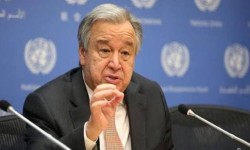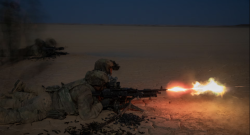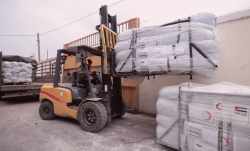Lebanon: Half of Beirut children showing signs of trauma after explosion
- 2020-08-24 23:29:37


 Pierre Rayer: Art, Science, and Happiness: The Universal Mission of Transmission to Future Generations through Patronage at the Louvre Abu Dhabi
Pierre Rayer: Art, Science, and Happiness: The Universal Mission of Transmission to Future Generations through Patronage at the Louvre Abu Dhabi Ahly crowned Super champions after dramatic extra-time win over Modern Future FC
Ahly crowned Super champions after dramatic extra-time win over Modern Future FC Yemeni Honey..A Development Wealth Threatened By Conflict And Climate Change
Yemeni Honey..A Development Wealth Threatened By Conflict And Climate Change California wildfires: Millions warned of possible power cut
California wildfires: Millions warned of possible power cut Central African rebels launch attacks near capital
Central African rebels launch attacks near capital Congress passes $901bn defense bill that includes support for Ukraine and Europe
Congress passes $901bn defense bill that includes support for Ukraine and Europe Guterres at Security Council: Yemen on the brink, restraint urgently needed
Guterres at Security Council: Yemen on the brink, restraint urgently needed U.S. Forces Protect the Homeland with Aggressive Pursuit of ISIS in Syria
U.S. Forces Protect the Homeland with Aggressive Pursuit of ISIS in Syria UAE President opens Games of Future Abu Dhabi 2025
UAE President opens Games of Future Abu Dhabi 2025 UAE steps up humanitarian efforts in Gaza
UAE steps up humanitarian efforts in Gaza
